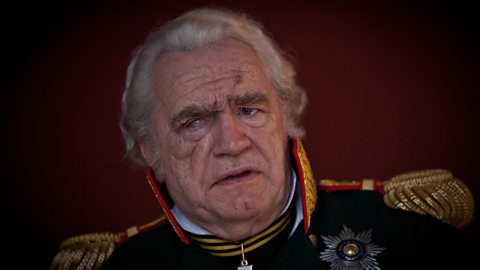Tuesday
I have very mixed feelings about the late President H. W. Walker Bush. While he made a devil’s bargain to defeat Michael Dukakis—his campaign manager Lee Atwater pioneered the racist politics that later contributed to Donald Trump’s victory—he also conducted a wise foreign policy. He was judicious in his response to the break-up of the Soviet empire and he was wiser than his son when it came to Iraq.
In retrospect, his decision to end the Persian Gulf War without overthrowing Saddam Hussein shows considerable perspicacity. I wonder if any credit can be extended to War and Peace, which was Bush’s favorite work of literature and which he describe as “an inspiring, lengthy treatise. I read it twice. It taught me a lot about life.”
I’m thinking particularly of similarities to Kutuzov, the Russian general who battled Napoleon. Kutuzov made unpopular decisions despite unimaginable pressure. According to Tolstoy, he didn’t follow up the Battle of Borodino with further attacks because he realized the army was in no shape to do so. He also reasoned that he should provide the defeated Napoleon with a “golden bridge” rather than wasting Russian lives by chasing him.
The general was heavily criticized for both moves, and his subordinates sacrificed many men by disregarding his order to let the French flee. Think of them as the architects of the second Iraqi War, which created ISIS, unsettled Syria, and cost thousands of lives and billions of dollars.
Here’s Tolstoy describing Russia’s version of Dick Cheney, Paul Wolfowitz et al., those figures in Bush Jr.’s administration who insisted on a second war with Iraq:
These men, carried away by their passions, …considered themselves heroes and imagined that they were accomplishing a most noble and honorable deed. They blamed Kutúzov and said that from the very beginning of the campaign he had prevented their vanquishing Napoleon, that he thought of nothing but satisfying his passions and would not advance from the Linen Factories because he was comfortable there, that at Krásnoe he checked the advance because on learning that Napoleon was there he had quite lost his head, and that it was probable that he had an understanding with Napoleon and had been bribed by him, and so on, and so on.
Not only did his contemporaries, carried away by their passions, talk in this way, but posterity and history have acclaimed Napoleon as grand, while Kutúzov is described by foreigners as a crafty, dissolute, weak old courtier, and by Russians as something indefinite—a sort of puppet useful only because he had a Russian name.
And further:
This procrastinator Kutúzov, whose motto was “Patience and Time,” this enemy of decisive action, gave battle at Borodinó, investing the preparations for it with unparalleled solemnity. This Kutúzov who before the battle of Austerlitz began said that it would be lost, he alone, in contradiction to everyone else, declared till his death that Borodinó was a victory, despite the assurance of generals that the battle was lost and despite the fact that for an army to have to retire after winning a battle was unprecedented. He alone during the whole retreat insisted that battles, which were useless then, should not be fought, and that a new war should not be begun nor the frontiers of Russia crossed.
Even if Poppy Bush didn’t apply Kutuzov’s wisdom directly to Iraq, it may be that Tolstoy taught him to look at the big picture rather than get caught up in the heat of the moment. Think how different the world would look if Bush Junior had followed his father’s lead.


